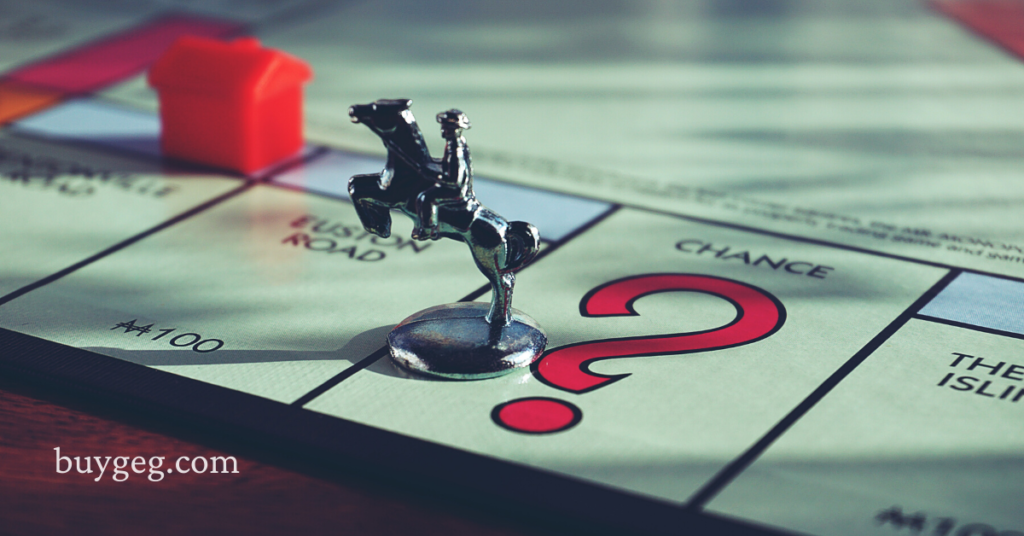
I found a Monopoly app in the app store and just installed it a couple of days ago. It is just like the Monopoly game I played as a kid except with slick graphics (if you touch the cat it licks itself), and you can play against the Artificial Intelligence. This makes the games go a lot quicker.
In some ways, the game is like real life real estate investing. The strategy is fairly simple. Buy as much as you can as quickly as you can, even if you have to mortgage properties. Block your opponents from obtaining monopolies, try to form your own monopolies, and add houses and hotels as quickly as you can afford.
One way that this strategy is similar to real life investing is that buying a lot of property is more important than what property you buy. In the end, for any town, most of the town appreciates at roughly the same rate. Values go up as cost of construction material goes up and as job growth brings people into the area. In areas like Los Angeles where it is hard to obtain building permits, when values are going up they go up quicker than inflation (because there is little to no building going on to help absorb demand) and when values are going down, they go down quicker than deflation.
Of course, in the game, there are no high crime areas. So this is a difference between the game and real life. In real life, buying in a high crime area can result in tenants being robbed or injured, causing liability for you and possible loss of insurance on a first claim.
A similarity between the game and real life is that there is an element of luck. In the game, it is the roll of the dice. In real life, it is possible to buy a property and have something immediately break. You also never know when a company or industry might shut down. But in real life there are ways to mitigate risk. You can get inspections. You can choose to avoid one horse (one industry) towns. More ways to mitigate risk than in the game.
Another similarity between the game and real life is that eventually rents can exceed your salary. If you are earning enough rent, you can even hang out in jail without worrying about having to run around trying to earn a salary.
But a difference is that in real life, it is very hard to have a housing monopoly. Unless you maybe are a government in a country that has a lot of subsidized apartments.
Another difference is that, in real life, hotels do not necessarily have higher yields (rate of return on investment if you paid all cash) than houses. Hotels require commercial loans for which interest rates adjust after 3 or 5 or some amount of years of fixed rate. With single family homes, you can have a rate that is fixed for 30 years. So if you get a loan with 5 percent interest and inflation causes market rates (and also rents) to go up, your interest does not change. You do not have that advantage with hotels. Also, you have a lot more cleaning and maintenance to do with a hotel. There is a lot more wear and tear and there can be periods of high vacancy rates. I’ve seen many hotels convert units to apartment units, sometimes resulting in zoning violation notices from the city.
Another similarity is that it is possible to make trades and deals with other investors. But there is a lot more advantage in the game than in real life. In the game, you can try to make a monopoly. In real life, there isn’t a whole lot of advantage in swapping one property for another. You’ll probably have to qualify all over again for a loan, unless you are assuming the existing loan or there is no loan.
Another difference is that there is a lot more advantage to leverage in real life than in the game. In real life, if you buy a 100,000 dollar house with 10% (10,000) down and it goes up by 3% in one year to 103,000, you have actually made a 30% return on your $10,000 investment. It is a bit more complicated than that due to transaction costs (so you usually need to hold at least a couple of years to make a decent return). But leverage is much more important in real life than in the game.
Another difference is that there is a bigger tax advantage to owning built up real estate in real life than in the game. In the game you must sometimes pay tax based on the number of houses and hotels you own, but in real life you usually pay very little tax. That is because you get to depreciate the building even though it is probably going up in value. When you sell, some of that depreciation is recaptured but not all of it. So is possible to have positive cash flow that is effectively tax free, at least until the depreciation runs out. But you can just sell every eight years or so and replace to get fresh depreciation.
In sum, the Monopoly game is a lot of fun but isn’t really too much like real life investing.